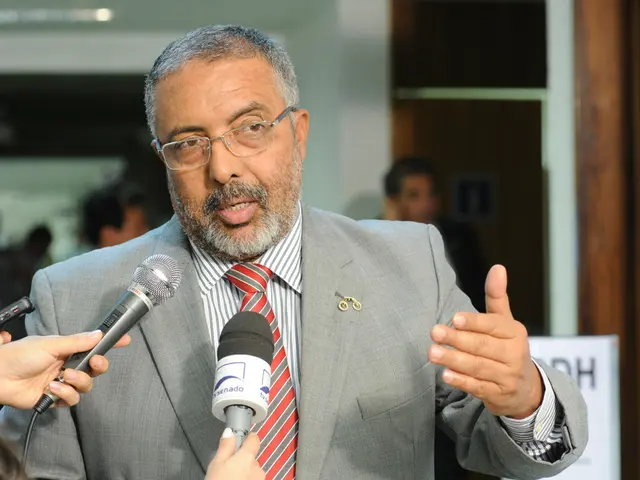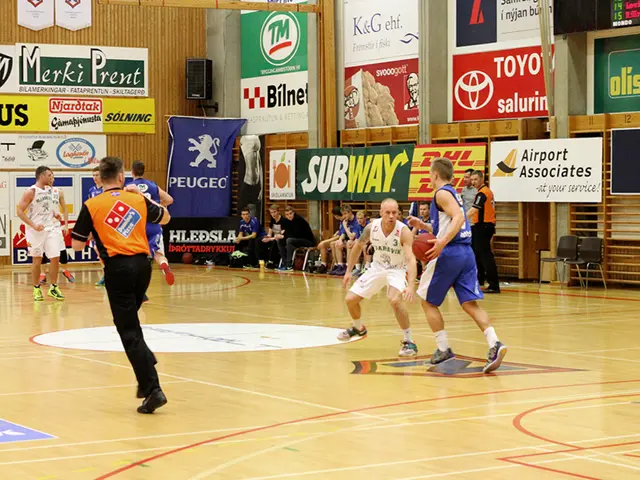Middle East Conflict and Pro-Palestinian Protests Highlight German Conference Agenda
The annual Conference of Interior Ministers (IMK) in Berlin is set to delve into the fallout of the Middle East conflict, Hamas's terrorist actions, and the resulting pro-Palestinian demonstrations affecting Germany. Guest speakers, including Israel's Ambassador Ron Prosor and the Central Council of Jews' President, Josef Schuster, will address federal and state interior ministers on these topics.
In addition to the Middle East conflict, the conference will discuss migration issues, refugee numbers, border controls, and strategies to combat rising violent crime. Another critical topic is the challenge of sexualized depictions of violence against children using artificial intelligence and the issue of reversing the burden of proof in confiscating criminals' assets.
Ensuring Public Order and Addressing Extremism
Recent pro-Palestinian demonstrations in Germany have triggered several responses by authorities:
- Subtle language restrictions: Authorities have imposed limitations on the use of Arabic during protests, allowing only German and English slogans. They have also banned marches and Arabic music to prevent potential conflicts.
- Strong enforcement measures: Protesters defying these rules have faced arrests, detentions, and heavy police responses.
Germany's tactical approach to pro-Palestinian demonstrations and related concerns is part of a broader strategy to maintain order and confront antisemitism and extremism. The country's naval presence in the Mediterranean and Red Seas, aiming to prevent arms smuggling and promote regional security, demonstrates its commitment to Middle East stability.
Military Readiness and Diplomatic Efforts
The Middle East conflict and its accompanying security issues shape Germany's defense strategy. Chancellor Olaf Scholz's stance on the Russia-Ukraine conflict reveals a lack of preparation for extensive military operations, necessitating a more robust defense strategy.
As the Conference of Interior Ministers unfolds, the intricate relationship between internal security policies, diplomatic endeavors, and strategic challenges will continue to influence Germany's response to the evolving Middle East conflict and pro-Palestinian demonstrations.
Enrichment Insights
- Arabic Language Ban: The German government has faced criticism for this restriction, as Amnesty International and other human rights organizations view it as discriminatory and a violation of free speech.
- Detentions and Arrests: Police have enforced strict measures during pro-Palestinian events, resulting in numerous detentions and arrests for chanting in Arabic or using Arabic music and slogans.
- Court Rulings: Berlin's Administrative Court has upheld the police's measures, which critics argue disproportionately target Arabic speakers and activists.
- Public Safety Concerns: Authorities have cited incidents of antisemitic remarks, violence, and attacks on journalists and police officers as reasons for implementing strict regulations.
- Human Rights Concerns: Amnesty International and other organizations have condemned Germany for infringing upon fundamental freedoms, especially the right to peaceful assembly and free speech.
- University Response: Freie Universität Berlin, an esteemed university in Germany, has taken action against hate speech and discrimination by filing charges against individuals involved in hateful remarks, while also supporting freedom of speech and assembly.








